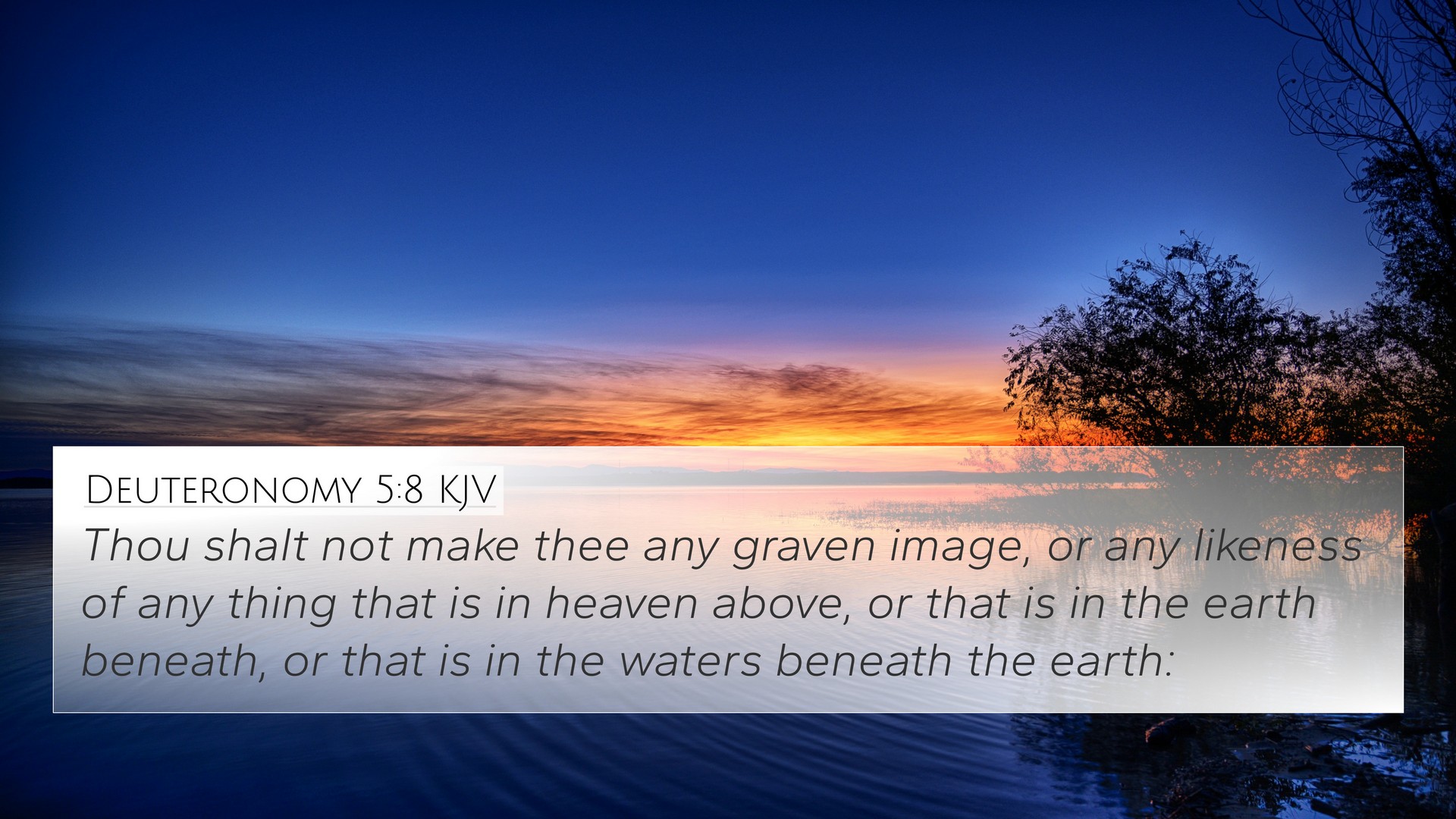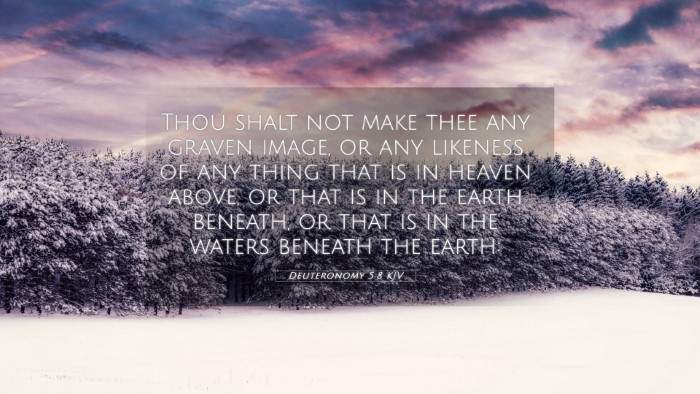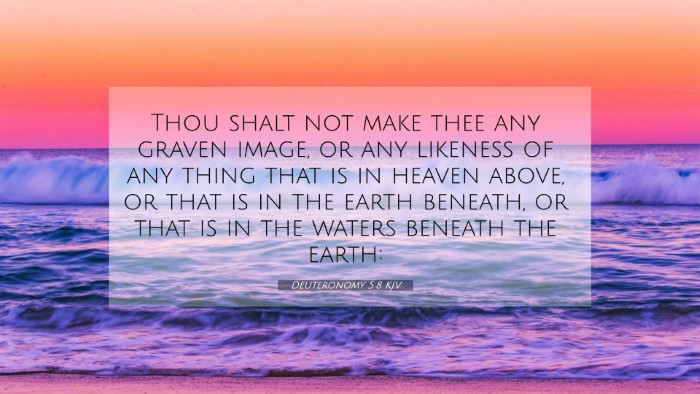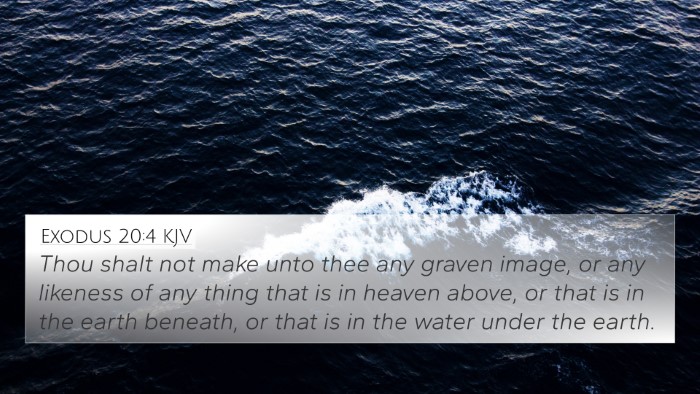Understanding Deuteronomy 5:8
Deuteronomy 5:8 states: "You shall not make for yourself a carved image, or any likeness of anything that is in heaven above, or that is in the earth beneath, or that is in the water underneath the earth." This verse is a part of the Ten Commandments, emphasizing a fundamental aspect of worship in the Israelite faith.
Insights from Public Domain Commentaries
Matthew Henry's Commentary
Henry underscores the prohibition against idolatry, which is a central theme throughout Scripture. He notes that making images leads to misrepresentations of God's nature, diverting worship away from the Creator to the created. Idol worship can foster an attitude of disobedience and is a significant violation of the covenant community’s fidelity to God.
Albert Barnes' Notes on the Bible
Barnes expands on the practical implications of this commandment, highlighting that the command was given to preserve the purity of worship. He asserts that such images may distort the truth about God’s nature, which is spirit and cannot be confined to physical forms. Therefore, worship should be grounded in spirit and truth, rather than material representations.
Adam Clarke's Commentary
Clarke elaborates on the theological significance of this command. He discusses the historical context, noting the influence of surrounding nations that engaged in idol worship. He warns against the adoption of foreign practices and emphasizes the importance of maintaining a unique identity as God’s chosen people, defined by their devotion to an unseeable God.
Thematic Connections and Cross-Referencing
The themes found in Deuteronomy 5:8 resonate through various parts of the Bible, yielding numerous cross-references that enhance our understanding of its meaning:
- Exodus 20:4-5 - The parallel command against making idols as part of the Ten Commandments.
- Isaiah 44:9-20 - A critique of idol makers and the foolishness of crafting gods from materials.
- Romans 1:22-23 - Paul discusses the exchange of God’s glory for images, signifying a moral decline.
- 1 John 5:21 - A warning against idolatry and the call to keep oneself from idols.
- Psalms 115:4-8 - The psalmist mocks idols and emphasizes their impotence compared to the living God.
- Acts 17:29 - Paul admonishes the Athenians not to think of the divine nature as akin to silver or gold, emphasizing God's transcendence.
- Colossians 3:5 - Encouragement to put to death whatever belongs to our earthly nature, including greed, which can act as a form of idolatry.
The Importance of Understanding and Applications
This commandment serves not only as a historical directive but as a timeless principle guiding believers today. In a world filled with distractions and potential idols, from material possessions to personal ambitions, the call remains to focus worship solely on God. The prohibition against idolatry invites a modern application reflected in practices of devotion, community worship, and the inward examination of what occupies the heart and mind.
Tools for Bible Cross-Referencing
Utilizing cross-references can deeply enhance our study of the scripture:
- Bible Concordance - A tool to find verses related to a specific word or theme.
- Cross-Reference Study Guides - Guides that provide links between scriptures to analyze themes further.
- Bible Reference Resources - Books and online resources containing collections of cross-references.
- Bible Chain References - Systems that link verses through thematic chains for deeper insight.
Conclusion
The exploration of Deuteronomy 5:8 and its commentaries highlights the coherent teachings that run throughout the Bible regarding the nature of God and proper worship. Understanding these connections enriches the believer's spiritual life and affirms the timeless relevance of biblical commands.




